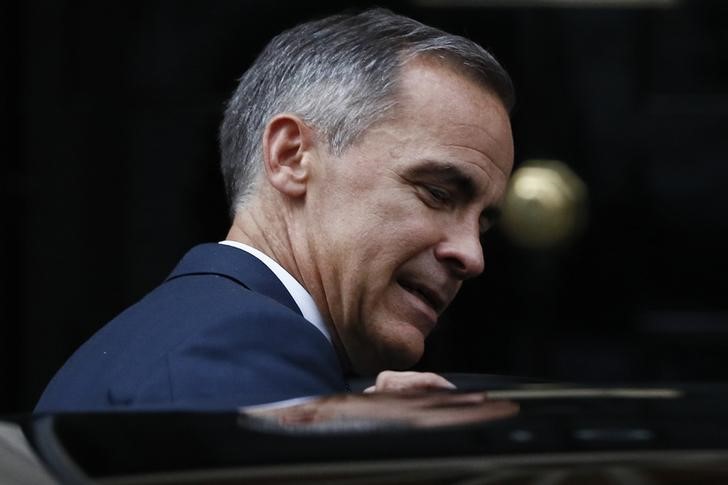LONDON (Reuters) - Attacks on the Bank of England from British politicians threaten the central bank's independence and could ultimately undermine trust in monetary policy, the head of a top research institute said on Wednesday.
Eurosceptic lawmakers have singled out the BoE and its boss Mark Carney in recent weeks, accusing the Bank of compromising its impartiality by warning of an economic hit from June's Brexit vote.
New Prime Minister Theresa May has also questioned the BoE's policies, as have prominent former ministers from her ruling Conservative Party.
Jagjit Chada, director of the National Institute of Economic and Social Research, said the criticism of the BoE was worrying, describing its 19 years of operational independence as a "great political achievement" that could now be at risk.
"Monetary policymaking should have been separate to the question of the political business cycle, and I'm concerned," Chadha said.
"What's the kind of thing that unhinges inflation expectations? It's if the credibility of the regime is questioned," he told reporters at a news conference.
Last month Carney told his detractors that he wouldn't "take instruction" on how to do his job from politicians, after Prime Minister May said savers had suffered from the BoE's low interest rate policy, and that a change had to come.
Carney said on Monday he would lead the BoE until June 2019, one year beyond his current five-year term.
Chadha said the scheduled departure date could leave the BoE exposed to more political ructions.
"The governor going in 2019 - the year before an election - is going to potentially throw up a very interesting race of succession, just at the point we're heading into an election campaign," said Chadha.
The BoE gained operational independence from the government in 1997 in one of Tony Blair's first acts as prime minister, a move widely seen as underpinning Britain's economic success of the last 20 years.
NIESR bumped up its projection for British economic growth in 2017 to 1.4 percent from it previous estimate of 1.0 percent.
It said the upgrade mainly reflected past revisions to economic growth and a stronger-than-expected expansion during the third quarter, rather than a softening of its view that Britain's economy will slow markedly next year.

The economy looks set to grow by 0.2 percent in the final quarter of 2016, NIESR said.